Global Lens Reflections on life, the universe, and everything
Rebuilding Liberia
Women continue to lead struggle against violence and poverty
By Paul Jeffrey
Published in Response magazine in September 2014.
Like many Liberian women today, Tomrah Topka has gone back to school. Every morning the 25-year old settles into a high school classroom in Monrovia, the African nation’s capital, surrounded by much younger girls. But she’s not embarrassed.
“I moved to the city so I could complete my education,” she said. “We need more ways for people to go back to school, people like me who couldn’t get an education because of the war. If we don’t get an education, we won’t get knowledge, and nobody will help us improve our lives. If we’re not educated, we won’t be able to educate our children. And if we can’t do that, things will never change in Liberia.”
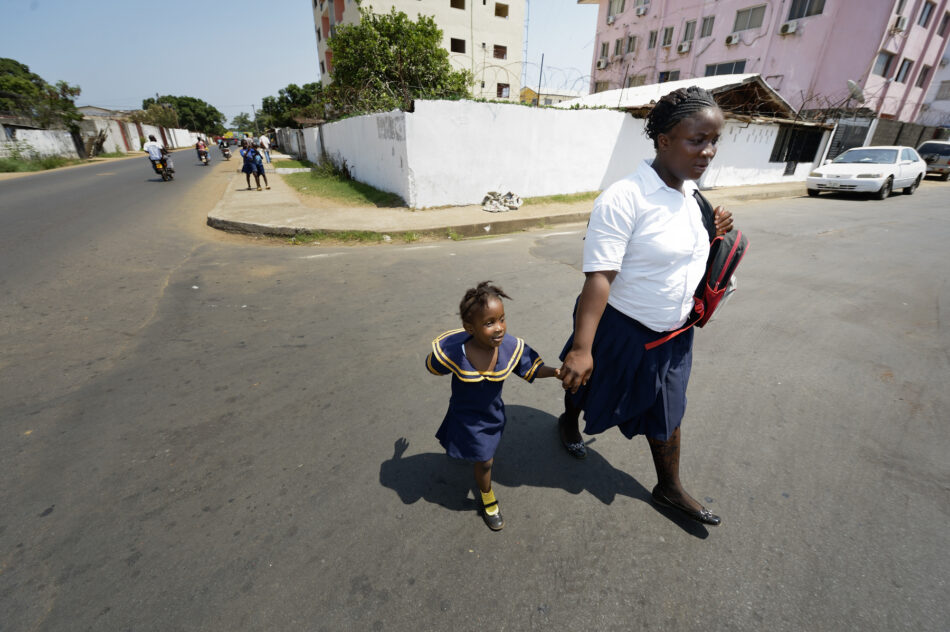
Change is what Liberians all want. After more than two decades of war that began with a 1980 coup, today the country continues to wrestle with the legacies of that conflict: chronic poverty, physical and emotional wounds and lingering resentments about who was responsible for the violence. Yet under the leadership of President Ellen Johnson Sirleaf, a United Methodist who was elected to lead the country in 2005, and reelected to another term in 2011, the West African nation has made slow but steady progress away from the horrors of its recent past.
Yet progress in Liberia isn’t simply a matter of the president, Africa’s first woman head of state, prescribing the right macro-economic measures prescribed by her former employer, the World Bank. Change is coming because of the commitment of people like Ms. Topka, who lost three brothers during the war and still wrestles with painful memories of forced dislocation, sexual assault and hunger. It is the willingness of ordinary people like her to make the necessary daily sacrifices that will insure a better future for all Liberia.
Every morning, Ms. Topka drops her 3-year old daughter Maropue off at a preschool in Monrovia run by United Methodist Women. Then she goes to school herself, hoping to soon finish her studies and enroll in the university, where she wants to study biology. In the afternoon, she picks up Maropue and heads to the market, where she spends the afternoon selling oranges. Her husband studies agriculture at a university in the morning and also sells in the market in the afternoon. At night they count their earnings, carefully setting aside what they need to pay school fees for all three people at the beginning of each semester.
Say no to poverty
A couple of hours outside Monrovia, several dozen poor rural women work together to farm cassava on a six-acre plot near Mount Barclay. They come from nearby communities and speak several different languages, but they’re united by a common struggle to improve their families’ quality of life. They say unity is the key to making change.
“When we are scattered, each of us thinking we have to make it on our own, nothing happens,” said Helena Mensahn, one of the group’s leaders. “But when we are organized in a group, and other women come to help us, then we will get rid of our poverty.”
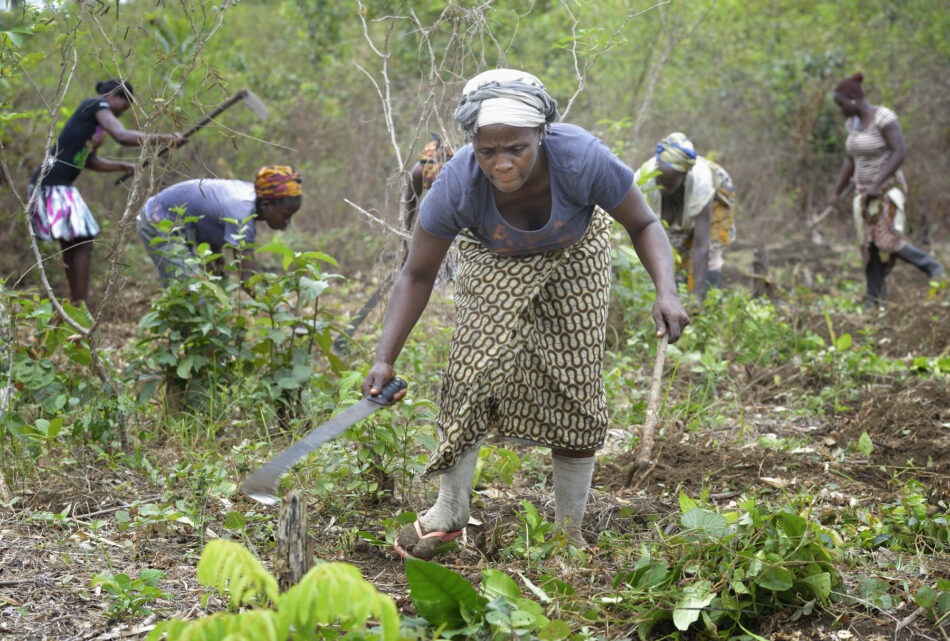
Most of the group are widows, a common status in a country where hundreds of thousands of people died in more than two decades of fighting, but because of the farm project they can now send some of their children to school. “That’s how we’re getting rid of poverty,” said Ms. Mensahn.
The farm project, dubbed “Say No to Poverty,” is sponsored by the National Federation of Women Employees and Allied Workers, and funded in part by United Methodist Women mission giving.
According to Elizabeth Addy, the program coordinator for the federation, the farm is more than simply an income-generating scheme.
“It also provides an opportunity for the women to feel important, to see themselves as in charge of their lives. With what they harvest they can go to the market, buy what they need and pay their children’s school fees. That gives them dignity, and that makes possible a better life ahead,” Ms. Addy said.
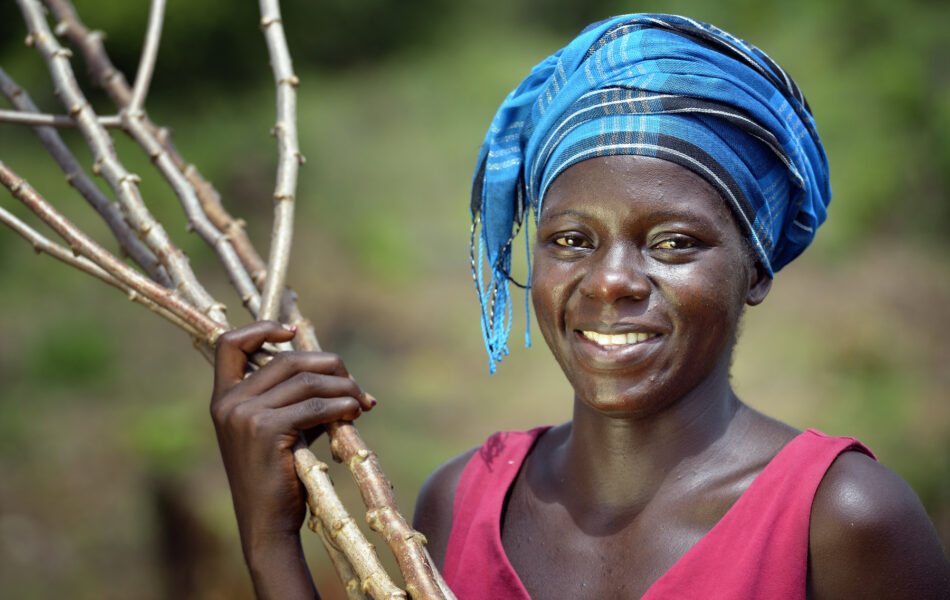
By making it possible for women to have their own income, Ms. Addy says the project is enabling participants to craft their own responses to a society-wide move back to school. Yet the choices they face aren’t always easy.
“A lot of women in Liberia look at our president and they get motivated to go back to school. But they also have to sustain their families. Some go to night school and get literacy training, but after a day of working hard in the fields and selling in the market, when they get to class in the evening they are too tired to pay attention. And if they don’t have money to send their children to school, they feel guilty for wanting to go themselves,” she said.
My Daughter’s Place
Beatrice Nelson lives in the countryside outside the town of Buchanan. She didn’t go to school as a girl, because fighting kept the schools closed and her family on the run. When she was 13, rebels showed up in her village and demanded money. Then they announced they would take the teenager with them.
“My mother cried, and she said, ‘My daughter is too small to go with you.’ But they said they’d kill her if she argued. They grabbed me and carried me away. They did bad to me. But one day when they sent me to fetch water for them, I ran away,” she said.
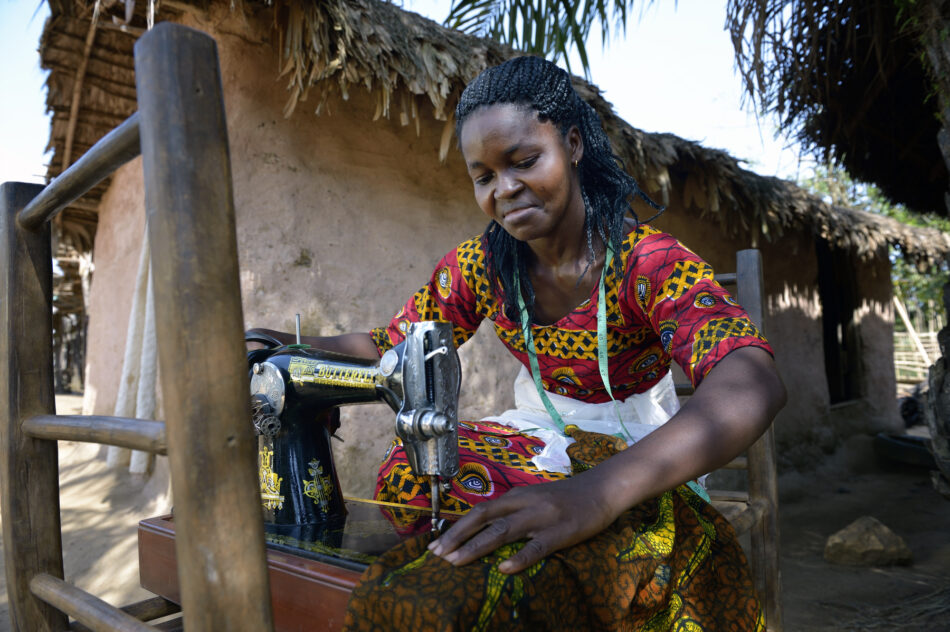
Ms. Nelson, now 34, wasn’t reunited with her parents until after the wars ended, and her mother died soon after. Ms. Nelson then came to live near Buchanan, where she met Frido Kinkolenge, a United Methodist missionary from the Democratic Republic of the Congo who was starting a program for young women at the nearby Camphor Mission. Called “My Daughter’s Place” and funded by United Methodist Women mission giving, it gave young women affected by the war a new start with training in vegetable cultivation, pastry making, tie-dying, soap making, as well as counseling and education in reproductive rights and family planning.
“My Daughter’s Place helped us learn the importance of our own selves, and helped me know I could do things myself,” Ms. Nelson said.
After a couple of years in the program, Ms. Nelson left with a sewing machine and a pair of goats. She started sewing clothes for her neighbors, and quickly repaid the machine’s cost. She also gave the goats back to the program but kept the offspring. She now has eight goats. Some of them jumped the fence and her neighbors brought them back. She repaid the favor by lending a pair of goats to her neighbors, who after a while gave the goats back but kept the offspring.
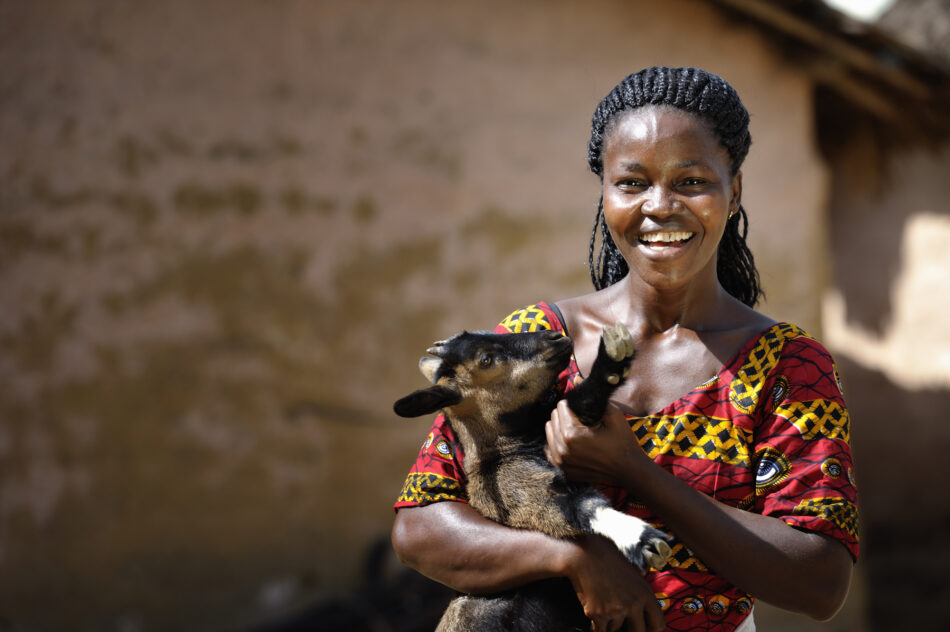
Ms. Nelson says she now feels in control of her own life. When she got sick and was hospitalized, she sold a goat to pay the bill. Given the income from her sewing, she says her husband treats her better and gives her equal say in family decisions. And she is making sure her five children go to school, especially her 11-year old daughter Yadrin.
“Her future will be different than mine. She has clothes to wear, and she has support for going to school. I know she has a future. It’s different than before,” Ms. Nelson said.
Building trust
Mr. Kinkolenge came to Liberia in 2000 to supervise a rural school, but fighting in the countryside kept him in Monrovia, where he met kids roaming the streets who’d been damaged by the war.
“I saw the boys and girls in the streets, and they were devastated. There were some Catholic programs to work with them, but they couldn’t absorb everyone. So we started gathering kids from the streets, teaching them to read and write and how to love and be loved again,” he said.
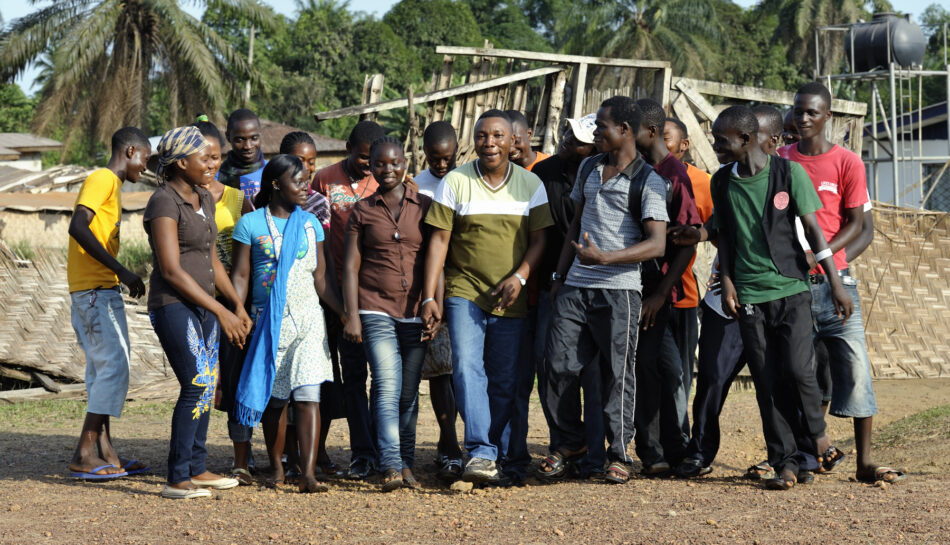
In 2003 Monrovia was engulfed in fighting once again, and Mr. Kinkolenge had to flee the country. When he returned several months later, he began working in Buchanan, a port city to the east of Monrovia which didn’t attract much attention from aid groups. At a center he started with support from the United Methodist Church in Germany, he again started working with children, many of whom had been forced to join rebel armies.
“Before we could get very far with counseling, we had to build trust with the kids. We did that by being present with them and assuring them that we’d never disclose the things they told us. All the time I worked with them they never heard their stories retold. When we’d built up their trust, they opened up to us about the terrible things that had happened,” he said.
Besides providing counseling and training in basic literacy, carpentry, soap making, typing, computer skills and cosmetology, Mr. Kinkolenge said he also had to defend the children against those who sought revenge for the role they’d played during the wars.
“People would recognize some of the boys who’d been involved in atrocities. They wanted to do them bad. In Africa that means lynch them or beat them or do some other bad thing. They saw them come to our center, and they’d follow children onto the campus. So we had to defend the kids. I went to police for help, and some days they’d understand and some days not,” he said.
“The kids were feeling that danger. The majority of them lived in a camp outside of town, and they started using remote paths rather than the main road to come to the center. Some would come early in the day, even if we had no activities in the morning. They didn’t want to go very far away, because they felt safer here.”
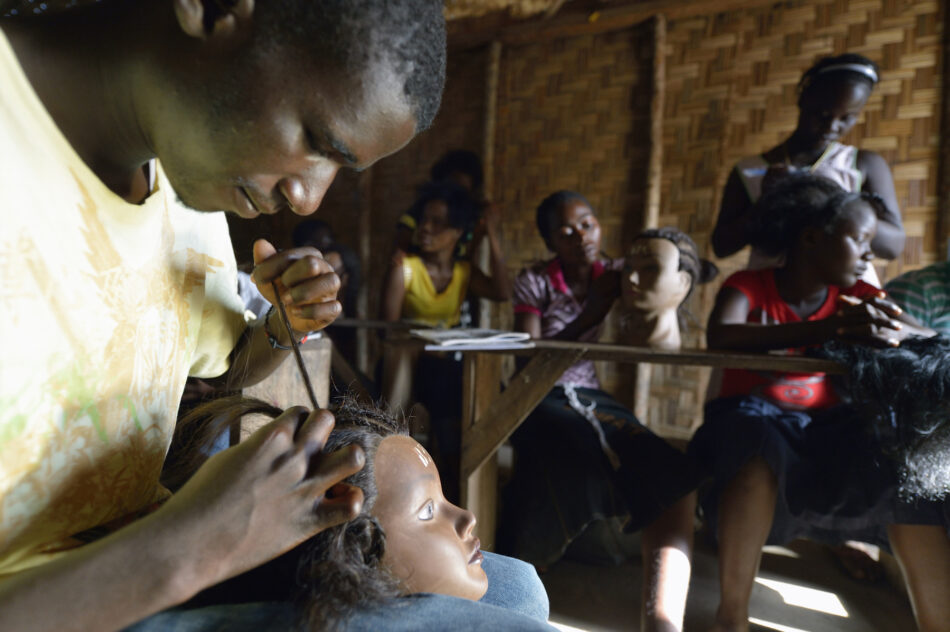
The United Nations had carried out a process of disarmament in the country, but Mr. Kinkolenge said even more was needed.
“We haven’t truly ended war until we’ve disarmed the minds of the people who fought it,” he said. “You can give children weapons, but if their mind is disarmed they won’t use those weapons. So even though they’ve today put down the machetes and assault rifles, their mind still has to be disarmed. Otherwise their thoughts become words, their words become actions, and their actions become a habit. They will solve every daily problem with violence. And the war will never really end.”
Mr. Kinkolenge, who came to the United States in late 2013 to enter seminary, warns that individual rehabilitation is not separate from the country’s overall economic recovery.
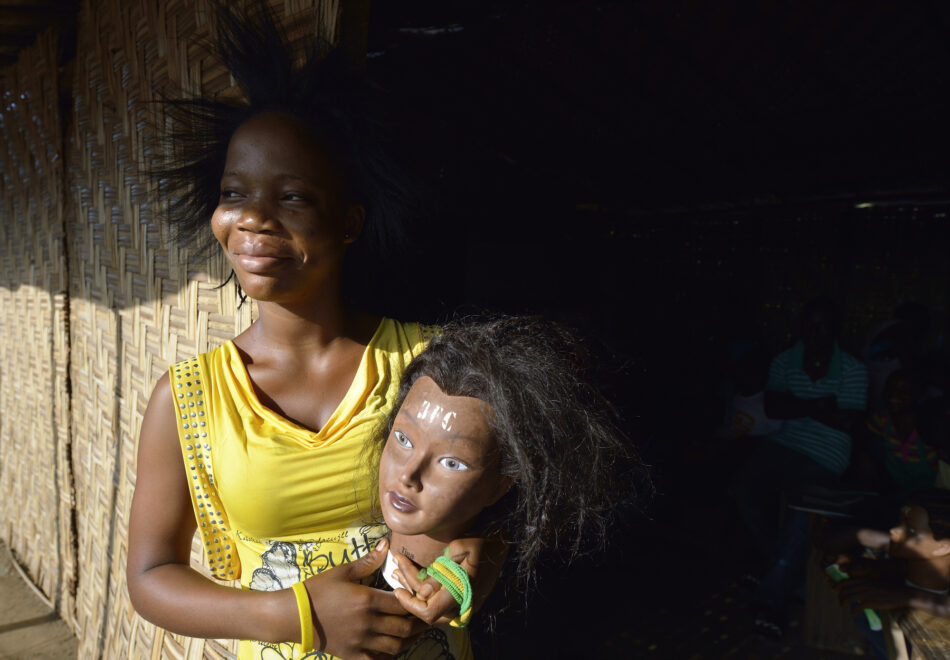
“The healing process is directly linked to the country’s economic sustainability,” he said. “The country is recovering, but there are still too few job opportunities. Today you have a job and tomorrow you lose it. The young people we’re training won’t easily find work once they leave the center. They have changed. That’s clear. After being so devastated by violence, today they can laugh and talk to people politely. They’ve come a long ways. But the country has a long ways to go in accompanying them to wholeness.”
“The war had made them nobodies”
Given historical gender-based discrimination in many poor countries, parents who can’t afford to send all their children to school will often send only the boys, while they keep the girls at home. Yet according to United Methodist Bishop John Innis of Liberia, having a woman as president makes it easier to argue for girls to go to school.
“We ask the parents, ‘Who is the president of the country today?’ We tell them their daughter can be the president someday, or a political leader or businesswoman, but to get there they’ve got to go to school first,” said Bishop Innis, whose conference serves more than 40,000 students enrolled in several schools and a university. As a result, he says more than 60 percent of graduates from United Methodist schools in Liberia last year were female.
“Having a woman as president has made for a big change in the political landscape, but also in the way parents look at their daughters,” he said.
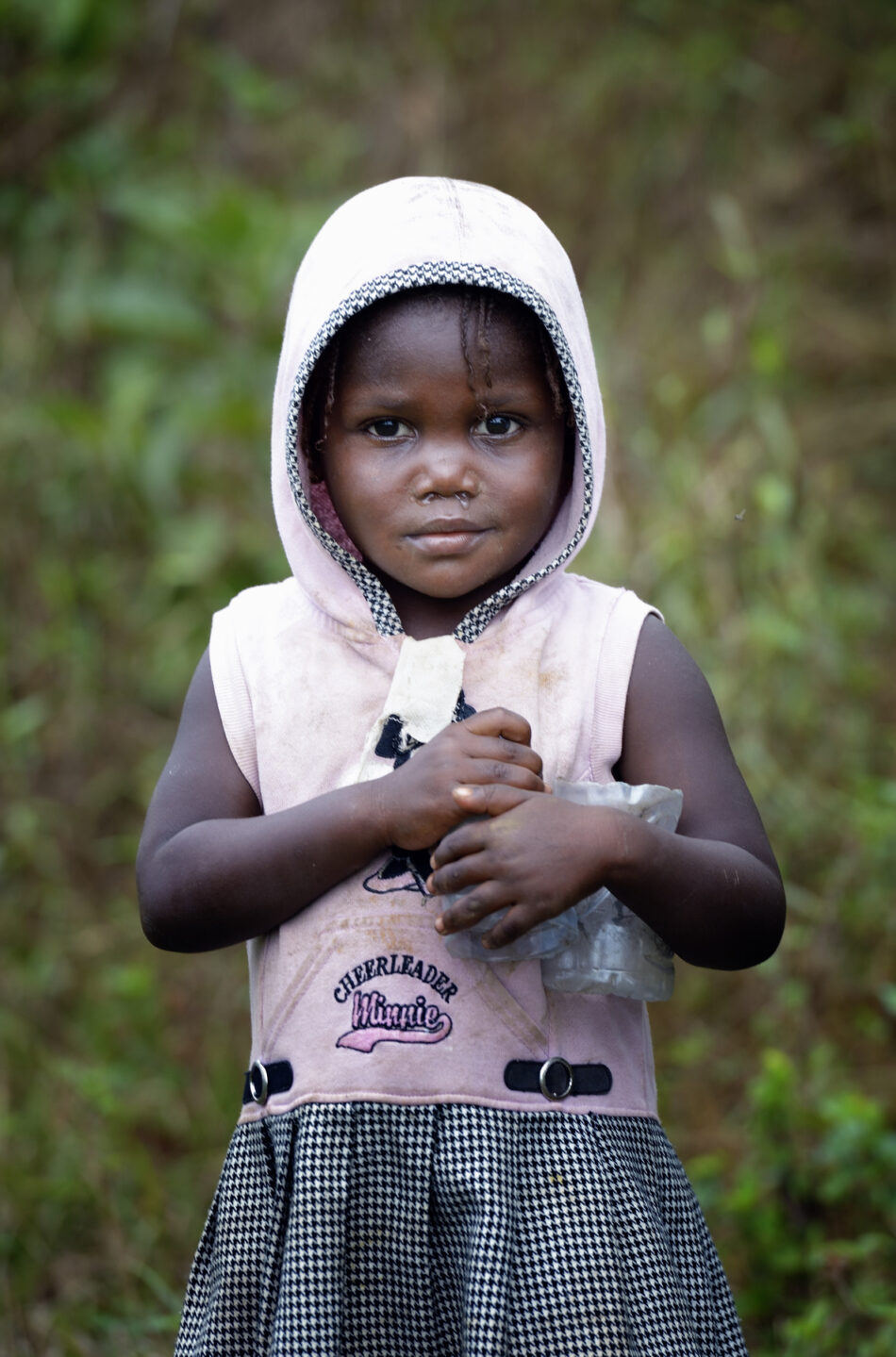
President Sirleaf isn’t the first example of women taking a highly visible leadership role in Liberia. During the country’s bloody civil wars, it was a coalition of Christian and Muslim women–armed only in white t-shirts–who took to the streets in prayerful protest that brought about peace talks to end the war. It was a victory for ordinary women–Ms. Topka remembers going with her aunt to pray with the women in the Monrovia fish market–that culminated in the election of a woman president, and later a Nobel Peace Prize for Ms. Sirleaf and two other women activists.
“Women were instrumental in bringing about peace in this country. They woke up, stood up and said, ‘We are all God’s creatures.’ They committed themselves to defend the helpless, the hopeless and the marginalized so that they will become somebody, because the war had made them nobodies,” Bishop Innis said.
Women’s leadership in Africa (there are now women presidents in Malawi and the Central African Republic) has been characterized by greater transparency in government. “The men were never accountable, they never led with justice, so it’s a wholesale change in the political landscape to have women leaders,” said Bishop Innis. “Most leaders we have in Africa don’t love their countries. They exploit, they victimize and brutalize people. But the women are today saying that’s all over. They want everyone who lives in God’s world to enjoy the benefits of God’s creation. They come to power not to promote themselves, not to rule over others, but to promote the people they work with.”

According to Alfreda Anderson, the coordinator of United Methodist Women in Liberia, her country’s women have gained a lot of political space in recent years, but they’re going to have to fight to maintain the advances.
“It used to be that there was no space for women in government. Women were looked down upon. We were told to stay in the house and serve our husbands. But we stood up for our rights, and things changed,” she said. “It will be tough when President Ellen leaves office. Right now there are a lot of women in government. The agriculture, justice and education ministers are women. The port authority and gender ministries are headed by women. We are up there. But some men are saying that Madame Ellen is just there for women, and that when she leaves office they’ll be able to get back the power they think they’ve lost. So we’re going to have to continue to fight hard.”
Sex for grades
One of those fighting hard to make change is Catherine Myemawo, the coordinator of the Young Women’s Network of the Liberian United Methodist Church. She tries to keep young women involved in the life of the church, and offers training programs–when she can find the funding–in skills like tailoring, pastry making and interior design.
One obstacle to involving young women in the church, Ms. Myemawo says, is the need to talk about reproductive politics, a discussion that many pastors aren’t comfortable with. But Ms. Myemawo insists the conversation needs to take place.
“We’ve got to talk about violence against women, which is very high, and talk about it not just with women, but also with men. We’ve got to talk about HIV and AIDS, and how most of the carriers of HIV in Liberia are women who’ve been infected unknowingly by their boyfriends. We do education, we distribute condoms, and we talk about the importance of abstinence. And we need to talk about teenage pregnancy. Eight of ten women in Liberia have a child while still a teenager. That’s a serious setback to development, because once a girl has a child she no longer wants to go to school. She sees herself as inferior to others. We help her understand she can still make headway in life,” Ms. Myemawo said.
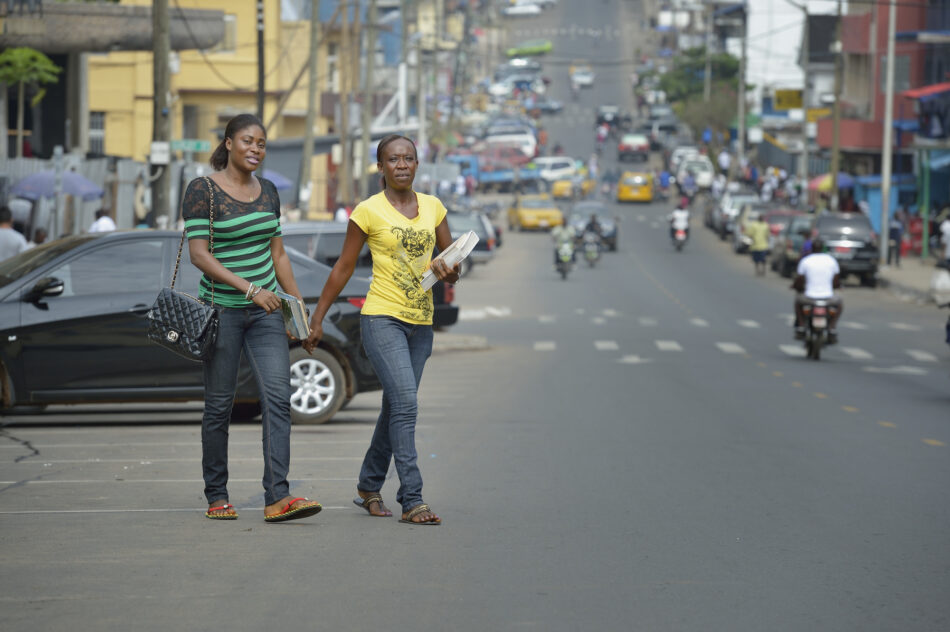
Liberia’s post-war poverty encourages transactional sex as a survival mechanism, Ms. Myemawo says.
“Economic conditions are hard, and many girls see having boyfriends as the only way to survive. If you don’t have the skills yourself, you turn to others for support. Some parents even ask their girls to go out and find someone to help them, to get money and bring it back, essentially to look for men who can support the family financially in exchange for sex. That’s one of the major causes of teenage pregnancy,” she said.
Ms. Myemawo says sexual politics remain a common theme at church gatherings of young people, despite the reservations of some older church leaders. “When we talk about HIV and AIDS, many older people in the churches would rather we not talk about sex. They’d rather condemn people than educate people,” she said.
One place where transactional sex is being discussed in Liberia today is in public debate about the practice of “sex for grades” in the country’s universities, including United Methodist University in Monrovia. A 2011 survey by ActionAid of three Liberian universities found that 85 percent of female students had been sexually harassed or involved in transactional sex while they studied. Some women were forced to keep repeating classes if they refused to have sex with their male lecturers. If a woman reported her lecturer and he was sacked, the teacher would often simply move to another institution, the survey showed.
“Many females don’t even pay attention in class because at the end of the day you have a teacher who wants to have sex with you and give you free grades. The boys do all the studying, while the girls are relaxed. Some don’t even come to class,” said Ms. Myemawo. “We try to help them understand that they’re not helping society. What happens with a girl who’s studying nursing and she graduates without the skills she’s supposed to have?”
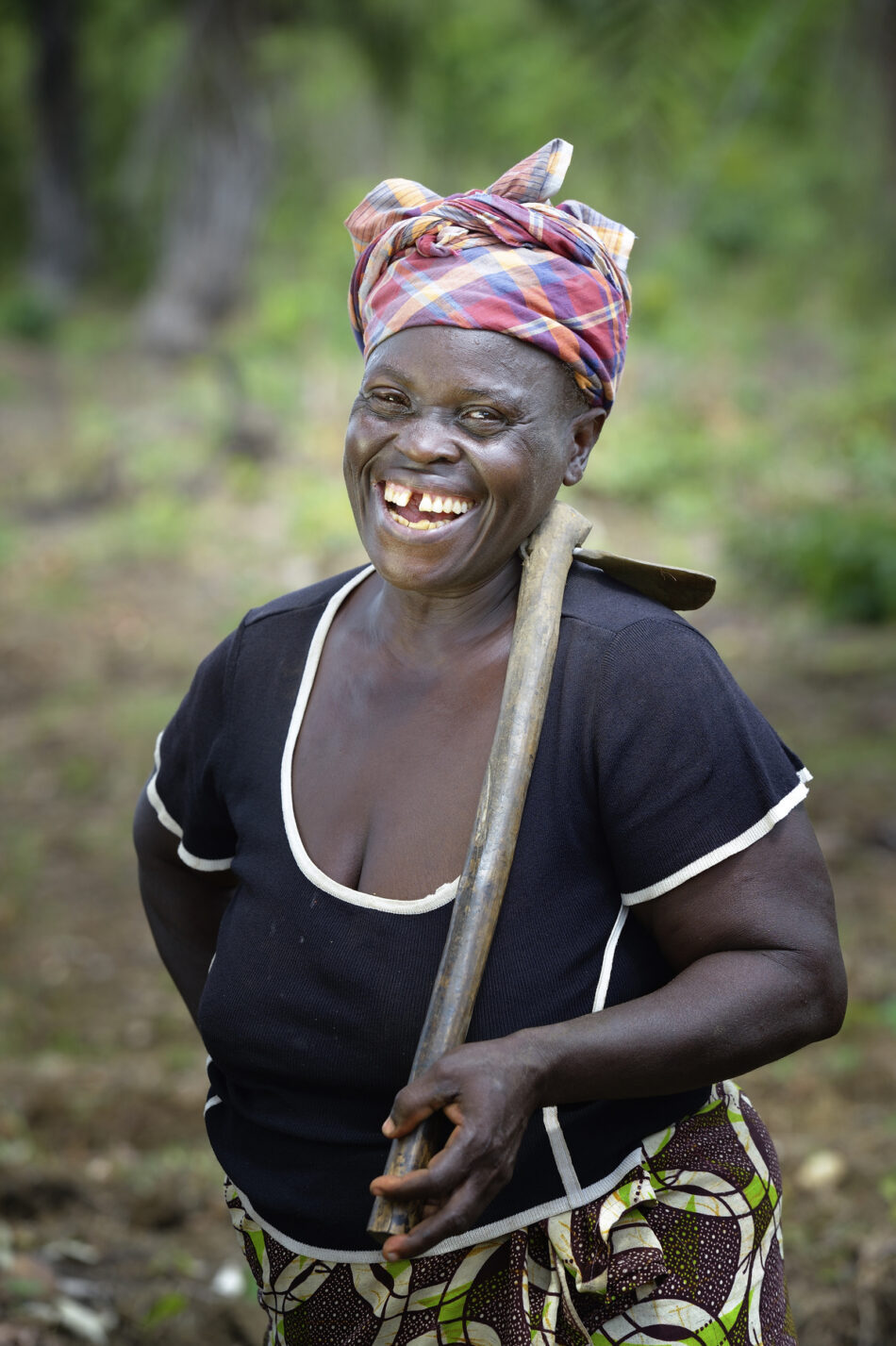
Ms. Myemawo’s young adult group works to combat the practice, making placards for schools and raising the issue in gatherings. She admits the issue reflects larger challenges for her country.
“One girl shared with me that she couldn’t study because she had no food to eat, and sleeping with her teacher got her not only grades, but food as well,” she said.
Catherine Hill says she has resisted trading her body for better grades. The 28-year old university student, who witnessed her parents’ murder by rebels during the war, was placed in a foster home and then ended up on the streets of Monrovia. Yet today she’s studying thanks to a scholarship from United Methodist Women.
“If we’re not educated, we’re not up to date. Our president is encouraging women to go to school. So we’ve got to stop the abuse and get our sisters into school. When a teacher wants to sleep with you to give you a grade, we’ve got to say no. We’re smart, and we’re going to fight inequality,” she said.
Ms. Hill is studying social work at the United Methodist University. “I want to talk with people who are traumatized, people who have no one to talk with. I want to help them restore their strength and experience hope for themselves and their nation,” she said.
She looks forward to graduating in 2015, but has one lament. “When I graduate, everyone will have their families there. But my parents won’t be there. I’ll miss them,” she said.
“We Liberians don’t have a culture of our own”
Just graduating from university doesn’t guarantee a job, however, especially in a country where who you know often matters more than what you know.
Ms. Myemawo says she was thrilled when the country elected a woman president, but over time she’s grown somewhat disillusioned with the possibility of profound change.
“Too many youth today are just hanging out, doing nothing. They don’t have jobs. You can graduate from college but you often can’t get a job unless you’re part of a certain class or you have some sort of personal relationship to the president or someone close to her. You can submit your application 100 times, but if you don’t have the requisite contact, no matter how qualified you are, you won’t ever get a job,” she said.
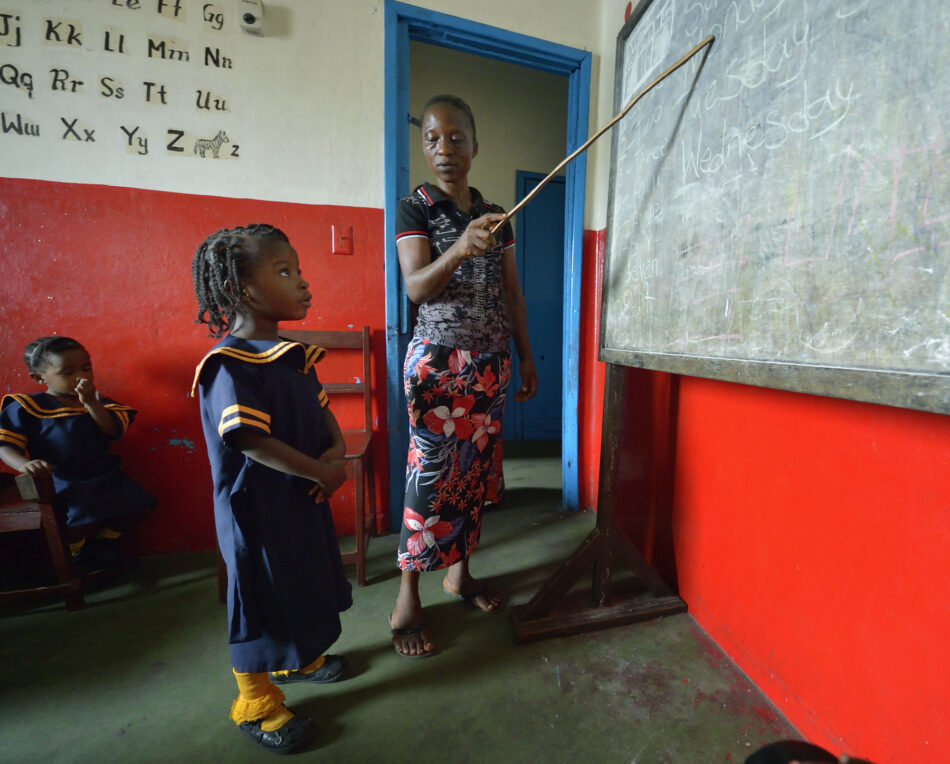
Much of Liberia’s history is interwoven by a struggle between Libero-Americans, the descendants of the first African-American settlers, and indigenous Africans. It was Libero-Americans who controlled the government from independence in the 19th Century until the beginning of the civil wars in 1980. Although the trauma of the wars has allegedly pushed Liberia beyond such distinctions, Ms. Myemawo says the class system remains in force, enabled by a cultural confusion about Liberian identity.
“What music do young people here listen to? It’s not African music, but rather reggae or Snoop Dog or 50 Cent,” she said. “I sometimes think we Liberians don’t have a culture of our own, we just imitate U.S. society. So much so that we forget where we’re from. Some young people prefer to use their father’s first name as their last name, because it’s an English name, rather than their African family name. They want to feel more American than African, even if we’re stuck here in Liberia. And it might help in getting a job. Because if you’re not a Dennis or a Jackson or a Johnson, forget about holding a high-level position in the government.”
Despite her frustrations, Ms. Myemawo remains hopeful that President Sirleaf’s tenure is a game changer.
“I’m happy a woman was elected. If one woman can do it, then any of the rest of us can,” she said. “We’re happy and proud, but we call on her every day to make even more changes, and to incorporate some of the people she doesn’t know. If they don’t try us, they’ll never know what we can do.”
The Rev. Paul Jeffrey is a United Methodist missionary and senior correspondent for response.